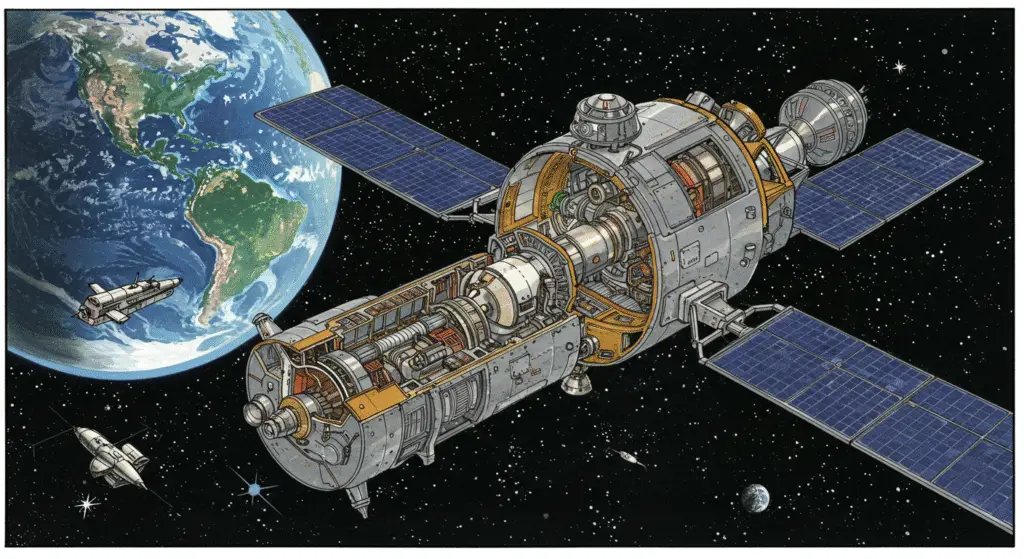Different types of engineering
Exploring the Diverse Landscape of Engineering: A Comprehensive Guide
Engineering is a vast and multifaceted field, encompassing a wide range of disciplines that shape the world around us.
From designing cutting-edge technologies to developing sustainable infrastructure, engineers play a crucial role in driving innovation and solving complex challenges.
In this comprehensive guide, we’ll explore the diverse types of engineering and the unique contributions they make to the advancement of society.
Mechanical Engineering

Mechanical engineering is a foundational branch of engineering that focuses on the design, development, and manufacturing of mechanical systems and devices.
Mechanical engineers are responsible for creating everything from automobiles and aircraft to household appliances and industrial machinery.
They apply principles of mechanics, thermodynamics, and materials science to develop innovative solutions that improve efficiency, performance, and reliability.
Civil Engineering

Civil engineering is concerned with the design, construction, and maintenance of the built environment, including structures, transportation systems, and public works projects.
Civil engineers are the architects of the physical world, working to create sustainable infrastructure that supports the needs of communities and societies.
This field encompasses a wide range of specialties, such as structural engineering, transportation engineering, and environmental engineering.
Electrical Engineering

Electrical engineering is the branch of engineering that deals with the study and application of electricity, electronics, and electromagnetism.
Electrical engineers are responsible for the design, development, and implementation of electrical systems, including power generation, transmission, and distribution, as well as the design of electronic devices, communication systems, and control systems.

Computer engineering is a hybrid discipline that combines elements of electrical engineering and computer science.
Computer engineers are responsible for the design, development, and integration of computer hardware and software systems.
They work on everything from microprocessors and embedded systems to computer networks and cloud computing infrastructure.
Chemical Engineering

Chemical engineering is focused on the design, development, and optimization of chemical processes and systems.
Chemical engineers apply principles of chemistry, physics, and mathematics to create products and processes that improve our lives, from pharmaceuticals and fuels to personal care items and food processing.
Aerospace Engineering

Aerospace engineering is dedicated to the design, development, and production of aircraft, spacecraft, and related systems.
Aerospace engineers are at the forefront of cutting-edge technologies, working on everything from commercial airliners and military jets to satellites and space exploration vehicles.
Biomedical Engineering

Biomedical engineering is a dynamic field that combines engineering principles with medical and biological sciences.
Biomedical engineers develop innovative medical devices, prosthetics, and therapeutic technologies that improve patient outcomes and enhance the quality of healthcare.
Environmental Engineering

Environmental engineering is concerned with the protection and management of the natural environment.
Environmental engineers work to develop sustainable solutions for issues related to water, air, and soil quality, as well as the treatment and disposal of waste.
They play a crucial role in addressing pressing environmental challenges and promoting the long-term sustainability of our planet.
The Versatility of Engineering
These are just a few examples of the diverse types of engineering, each with its own unique focus and areas of specialization.
What unites all engineers, regardless of their specific discipline, is a common problem-solving mindset, a deep understanding of scientific principles, and a commitment to driving progress and improving the human condition.
Throughout your engineering journey, you may find yourself drawn to multiple disciplines, as the boundaries between fields often overlap and intersect.
This versatility is a strength, as it allows engineers to collaborate across disciplines, tackle interdisciplinary challenges, and develop innovative solutions that transcend traditional boundaries.
Embracing the Opportunities in Engineering
As you explore the various types of engineering, consider the opportunities that align with your interests, skills, and passions.
Whether you’re drawn to the cutting-edge technology of aerospace engineering, the sustainable solutions of environmental engineering, or the life-saving innovations of biomedical engineering, there is a place for you in this dynamic and rewarding field.
Embrace the diversity of engineering, and let your curiosity and problem-solving skills guide you towards the path that will allow you to make a meaningful impact on the world.
With a deep understanding of the different engineering disciplines and a willingness to learn and adapt, you’ll be well-equipped to navigate the ever-evolving landscape of this exciting and transformative field.
- https://worldcivilsociety.com/how-to-weigh-the-advantages-and-disadvantages-in-structural-engineering/
- https://worldcivilsociety.com/how-to-weigh-the-advantages-and-disadvantages-in-structural-engineering/
- https://worldcivilsociety.com/is-structural-engineering-a-good-career/
The Pillars of Progress: Exploring the Diverse World of Engineering
Engineering is the creative force that shapes our world. It uses science and math to design and build many things. From tiny computer chips to big bridges, engineering is key to our modern life. It has grown into many areas, each tackling different challenges and driving new ideas.
The “Big Four”: The Foundational Disciplines
Engineering is mainly split into four main areas. These are often called the “Big Four.”
1. Civil Engineering
Civil engineering is the oldest branch. It deals with the physical world we live in. Civil engineers build our buildings, bridges, and roads. They also manage our water and waste systems.
2. Mechanical Engineering
Mechanical engineering is very broad and versatile. It deals with motion, energy, and force. Mechanical engineers work on everything from watches to power plants. They also design cars and manufacturing systems.
3. Electrical Engineering
Electrical engineering is at the heart of our world’s electricity. Electrical engineers work on all things electrical, from tiny circuits to big power grids. They are key in powering our homes and industries.
4. Computer Engineering
Computer engineering is a mix of electrical engineering and computer science. It deals with both hardware and software. Computer engineers design the digital world, from chips to software systems.
Other Major Engineering Frontiers
There are many other important engineering fields too.
Chemical Engineering
Chemical engineering uses chemistry, physics, and biology to make useful products. Chemical engineers work in chemical plants, making fuels, medicines, and plastics. They also create new materials and improve chemical reactions.
Aerospace Engineering
Aerospace engineering deals with flight, both in and out of our atmosphere. It includes aeronautical and astronautical engineering. Aerospace engineers work on planes, spacecraft, and satellites, pushing the limits of flight.
Industrial Engineering
Industrial engineering aims to optimize everything. Experts in this field make complex systems more efficient. They work in many areas, like manufacturing and healthcare, to cut waste and boost productivity.
Biomedical Engineering
Biomedical engineering combines engineering and medicine. It involves creating life-saving technologies like artificial organs and medical imaging tools. Biomedical engineers also work on new biological materials for health.
The Ever-Expanding Horizon of Specialization
Engineering keeps growing as technology advances. Fields like environmental engineering help protect our planet. Materials engineering focuses on creating new materials. Other areas include nuclear, petroleum, and agricultural engineering.
Engineering shows our creativity and drive for improvement. It tackles big challenges and builds a better future. The many branches of engineering work together to make our world safer and more advanced.
Pingback: Engineering the Future: Tackling the Four Grand Challenges – worldcivilsociety.com
Pingback: The Transformative Power of Technology in Engineering – worldcivilsociety.com
Pingback: The Engineering Method: A Systematic Approach to Tackling Complex Challenges – worldcivilsociety.com
Pingback: Mastering the Art of Problem-Solving: Exploring the Five Essential Methods – worldcivilsociety.com
Pingback: Navigating Complexity: The Four Approaches to Effective Problem-Solving – worldcivilsociety.com
Pingback: Unlocking Innovation: The Transformative Power of Engineering Methods – worldcivilsociety.com
Pingback: Paving the Way to a Career in Civil Engineering: Navigating the KCSE Requirements in Kenya – worldcivilsociety.com
Pingback: What are the big 5 types of engineering? – worldcivilsociety.com
Pingback: Civil Engineering 7 Serene !!, What is it in Civil Engineering?